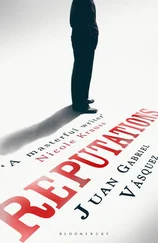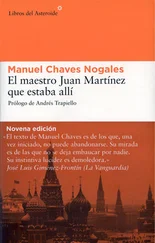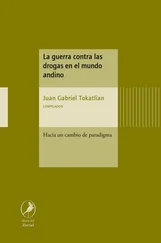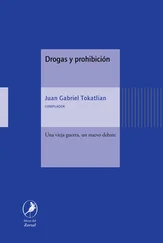“Ah.” Agatha straightened up in her seat. “Well, my father’s name was Raymond, so I would be called Raymonddóttir. The daughter of Raymond. But the two letters together, the d of Raymond and the d of dóttir , sound ugly and grating.”
“Yes, a little,” Oliveira admitted.
“It would have to be Raymondóttir, with just one d .”
“Doesn’t sound that great, either.”
“No. Good thing I’m not Icelandic.”
Oliveira smiled. Suddenly seeing her like that, lighthearted and carefree, pleased him as if the well-being of this stranger had begun to matter to him.
“Have you been there?”
“No. But I’d like to, God knows I’d really like to. It must be a lovely country, don’t you think? Do you know how to say ‘I’m lost’ in Icelandic? Ég er týnd .”
“Eg er tynd,” Oliveira tried to repeat.
One of Agatha’s hands moved to her chest; through the material of her blouse her fingers closed over the Christ figure.
“God knows I’d like to live there. Maybe one day I’ll be able to. The night hardly lasts at all, Oliveira. In June, dawn breaks at three in the morning, and night doesn’t fall until twelve. And anyway, the sky never darkens completely, it stays as blue as the sea, it never gets this repugnant black we have here.”
“But that’s in June,” said Oliveira. “In winter it must be worse than here.”
Agatha wasn’t listening. She wasn’t looking at him, wasn’t looking ahead. Her gaze was lost in some distant point, far beyond the window at her side, a point lost among the grain silos, the fields of crops combed by the wind in yellow waves that were the color of fool’s gold against the backdrop of the sky.
“There is an island, in the north of Iceland. It’s called Grímsey. The Arctic Circle goes right across the middle of it, cutting it in two. On Grímsey the sun never sets. It’s light at midnight, it’s light at three in the morning. Can you imagine, Oliveira? A never-ending day, that’s there all the time.”
“Yes, but that’s in the summer. In the winter it must be the opposite, night all the time.”
“Light at midnight,” said Agatha. “Light at three in the morning. So no one is afraid, no one feels the horror of having a fear of the dark.”
The first sign announcing L’Isle-Adam appeared an hour later. Oliveira exited the highway onto one of those minor side roads that always fascinated him because anything could happen along them: a cow, a couple in conversation sitting at the edge of the pavement, and maybe, at the right time of year, a deer leaping across the road.
“Now what do I do?” said Oliveira.
“Straight ahead. I’ll tell you, don’t worry.”
Oliveira looked in the mirror: it had happened. The attack, the urgent need to drop her off and turn back into himself, a man who only counted on himself, a solitary man. And what if she asked him to spend the night with her, to sleep over at her house? He would decline, of course, but how? It was incredible that it still took so much effort to make all the arrangements to conserve his independence, speak those words, make those gestures. It was incredible that life had so insistently proved the futility of any opening up, the greater wisdom of closing in on himself, and he still didn’t know how to apply those lessons. He began to think how he’d say good-bye to her, and the evaluation of various displays of affection, a kiss on the lips, cheek, or forehead, an exchange of phone numbers — but he didn’t yet have a house to call his own, much less a phone number — seemed to him too much like a children’s game. A sign, this time white, announced the entrance to the town on the left, a hundred meters ahead.
“Do I turn here?”
“Yes,” said Agatha.
Oliveira looked in the rearview mirror, pushed down the indicator. The van was beginning to turn when Agatha said:
“No, sorry. Keep going straight, it’s further on.”
A swerve of the steering wheel straightened out the van.
“You sure?”
“I’m a bit sleepy, or still drunk, I don’t know. It’s straight on, Oliveira.”
He obeyed. Agatha refocused her attention, her eyes wide open, scanning the view. You don’t know where you live, thought Oliveira, you’re lost or don’t want to arrive, and suddenly felt a new link to her: You hate your house, too. He went over in his head the times the odometer had clicked around, one, two, three, four, this was a considerable detour, this woman was considerably lost. They crossed Pontoise along a narrow sleeping street plagued with speed bumps that shook the aluminum instrument case like a maraca. Oliveira expected a comment from Agatha, but, although she didn’t take her eyes off the road, and although her fingers were crickets that leaped as they recognized the way, nothing came out. They had to get close to Meulan before Oliveira started to understand.
“We’re not going to your house, are we?”
Jokingly, she reproached him for being so masculine that he couldn’t tolerate losing total and absolute control of the vehicle.
“Agatha.”
“What?”
“Where are you taking me?”
“Relax. We’re here anyway, we can’t turn back now.”
She pointed to an embankment leading to an oak-lined drive.
“Turn in,” she said.
The gravel shifted under the tires. The house Oliveira arrived at was a façade with no sign of depth, black and flat like a canvas painted to conceal the construction behind it. There were no lights on. From outside, the attic could be seen standing out against the sky.
“Park here,” said Agatha, and her thin fingers moved in the air. “Don’t turn off the engine, so the lights will shine into the room.”
“Aren’t there any lights?” Suddenly Oliveira was furious. “But where the fuck are we?”
“My daughter died here,” said Agatha. “You’ll think I’m crazy, but I wanted you to see the place. I don’t know why you, Oliveira, maybe just because you’re the one who’s with me tonight. Sometimes things are that simple.”
—
TANGLED IN THE BUSHES along the drive were pieces of the police tape they’d used to cordon off the house. Agatha walked ahead and he followed her, breathing the swampy air the autumn rains had produced, the smell of the stagnant water and rotting wood. Oliveira imagined the place next summer, mosquitoes spiraling above the long grass. They walked around the redbrick walls to the glass door into the kitchen. The windows were intact, but the interior was invisible. Agatha turned the knob and the door opened soundlessly. Inside the colors were no different, the world was blue and black.
“They lived here,” said Agatha. “Alma spent her last year here, Oliveira.”
On the large table with a synthetic cover rested three coffee cups, each on top of a different coaster. One of them had the label of a Belgian brand of beer, Judas. The letters of the word were red, but in the darkness, broken only by the van lights shining through the big front window, the red turned purple as if they were at the bottom of the sea or like the lips of someone who’d frozen to death. Oliveira went into the front room looking all around — not a stick of furniture, no rug, just a parquet floor dulled by dust — scrutinizing the bare, white walls, lacking even a nail hole, that basic trace of humanity, evidence that someone had wanted to take possession of a place with the simple gesture of hanging up an image. He wondered in which of the corners of the house Alma had lain down to die, which room and which bed had been chosen by the person who’d injected her with the morphine Agatha was now mentioning, talking about the autopsy, the communiqué the police had sent out to the close family members of the dead people with the description of the bodies neatly organized, laid out methodically with the rigidity of a military barracks, and covered with a freshly washed white sheet, a terrible quotidian detail as if an affectionate grandmother had just embroidered it for that purpose.
Читать дальше










